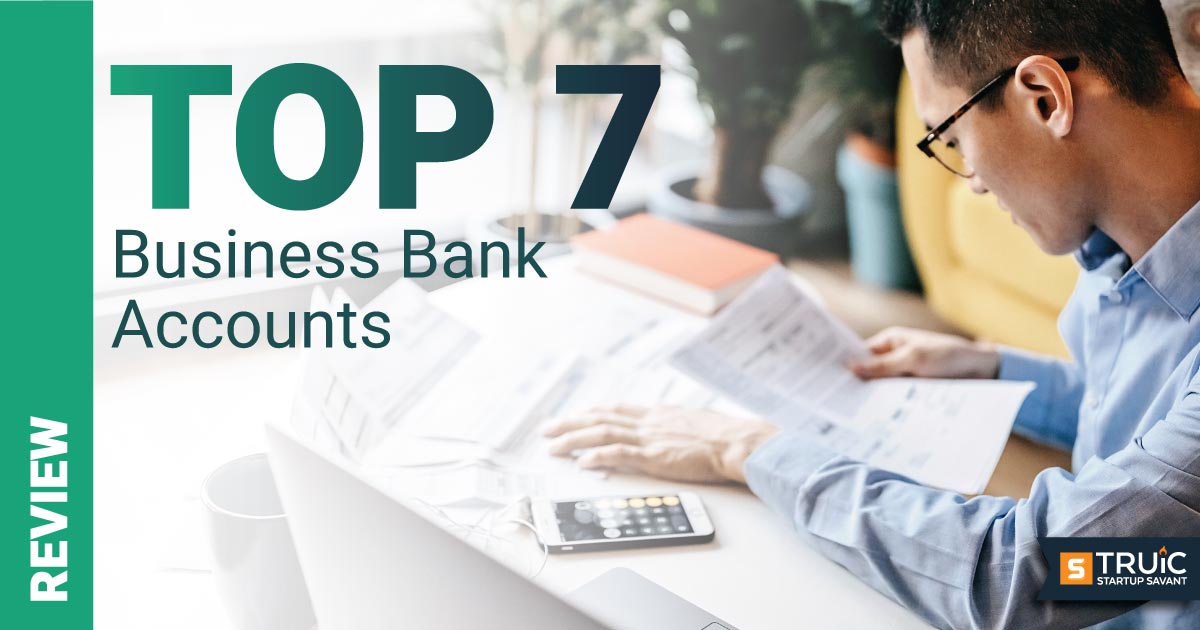How to Get a Business Credit Card With an EIN Only

Last Updated: By TRUiC Team
If you're an entrepreneur who's been turned down for a business credit card, don't give up hope. You can still get a great credit card deal even without a Social Security number (SSN). All you need is an Employer Identification Number (EIN).
This guide will walk you through the steps required to get a credit card with an EIN alone as well as highlight the best EIN-only credit cards for your startup.
Recommended: Read our guide to the Best Credit Cards for Startups.
What Is an Employer Identification Number (EIN)?
An EIN is essentially a nine-digit tax ID number given to sole proprietors, partnerships, limited liability companies (LLCs), and corporations by the Internal Revenue Service (IRS). It's used to identify a business for tax purposes, similar to a SSN.
Any US-based business owner can apply for an EIN from the IRS online. To do so, you must provide your SSN. Once approved, you'll only have to share your EIN to apply for a business bank account, business credit card, or business loan.
Corporate cards typically allow you to apply without a Social Security number, but they have stricter approval criteria. A small business credit card that doesn't require a personal guarantee is the best option for new business owners.
Benefits of Using an EIN to Apply for Business Credit Cards
While any business can still apply for a business credit card without an EIN, having one offers certain advantages. Below are a few reasons you'd want to use an EIN instead of sharing your SSN with credit companies.
Your Personal Credit History Is Not Considered
Low personal credit scores can hurt your approval odds and lower potential credit limits for your business credit cards. If you use an EIN instead of your SSN when applying for business cards, credit card companies won't consider your personal credit score in their review for approval.
Furthermore, business owners with poor personal credit history have a second chance to rebuild a good credit history with their business credit card vs. relying on personal credit cards alone.
Business and Personal Credit History Will Be Separate
The biggest advantage of using an EIN to apply for business credit cards is it’ll keep your personal credit history and your business credit history separate.
The more you can separate your business and personal finances, the easier it’ll be to file taxes at the end of the year. Plus, separating personal and business finances helps to protect your personal assets.
Moreover, credit card companies typically report business credit card activity to commercial or business credit bureaus only instead of reporting that activity to personal credit bureaus. This means any negative activity you accrue on your business credit history won't affect your personal credit history (and vice versa).
No Personal Guarantee Required
Finally, applying for an EIN-only credit card will save you from making a personal guarantee to business credit card issuers. This is a major benefit because a personal guarantee means the credit card company can come after your personal assets if your business defaults on the credit card.
However, these EIN-only corporate credit cards come with their own drawbacks like fewer rewards opportunities or the inability to carry a balance.
Business Credit Cards That Don’t Require an SSN
Finding credit card issuers that don't require an SSN requires reading through terms and conditions and cross-referencing different companies. To simplify this process, below is a list of the best credit cards for which you can apply using only your EIN.
Brex
The Brex corporate credit card is a powerful financial resource for venture-backed startups.
The company is known for its startup-centric services, including lines of credit, expense management features, and robust budgeting tools.
To apply for Brex's corporate credit card, a business owner may need to provide an SSN if it’s required by US regulatory requirements. However, Brex won’t use that SSN to underwrite the account.
With this business credit card, cardholders receive up to seven times cash back, credits, or billboards on their spending. They also get a customized credit limit of up to 20% of their external bank's cash balance or up to 30% of their Brex business bank account balance.
BILL (Formerly Divvy)
While BILL does require you to submit your SSN in order to secure a business credit card, the company doesn't conduct a hard credit check or report to personal credit bureaus. Additionally, the company still encourages business owners with bad credit to apply.
Credit lines with the BILL Spend & Expense card range from $500 to $5 million. However, BILL offers flexible underwriting that adapts to suit your specific business needs.
In addition, cardholders incur no annual fees and gain access to automatic expense management, fraud protection, and budgeting tools.
Rho
Rho is an excellent choice for companies with a large capital reserve and high-growth potential. The card doesn't require any personal guarantee, but still offers a generous 1.75% cash back on eligible purchases.
The challenge with the Rho Corporate Card, and corporate cards in general, is the $50,000 minimum account balance you must keep available at all times.
You can still get approved if your business doesn't have that much capital, but you must spend at least $5,000 each month in expenses.
Businesses that can meet the strict requirements by Rho will enjoy a handful of budget management tools designed for large companies.
Ramp
The Ramp Business Card doesn't require a personal guarantee and works as a charge card. That means your business won't be able to carry a balance from month to month, but at least you can keep your personal and business credit history separate.
For businesses that have smaller expenses and don't need large, upfront capital, the card will work just fine. There isn't any annual fee, and, because you can't carry a balance, you won't have to worry about annual percentage rate (APR) interest eating into your budget.
Your business will, however, need an excellent credit rating in order to be considered for approval — and sole proprietors are not eligible to apply.
Ramp includes a few budget management tools that work for your entire team, making the card more attractive for smaller businesses with several team members.
Recommended: Read our guide to the Best Business Credit Cards for Startups.
How to Apply for a Business Credit Card With an EIN
Securing a business credit card requires submitting an application to a credit card issuer. However, you must take a few steps before you can gain an issuer’s approval for a corporate credit card with an EIN alone.
Step 1: Apply for an EIN
Your first step is to obtain an EIN from the IRS. To do this, you can apply online or by fax or mail.
The quickest and easiest method is to apply online through the IRS website. The whole process will take less than 15 minutes as long as you have all the necessary information on hand. To apply for an EIN online, you'll need:
- Your business name and address
- Your SSN
- Your business structure (sole proprietorship, corporation, etc.)
Once you have all the necessary information, simply head to the IRS website and fill out Form SS-4. The online application will ask a series of questions related to your business and then generate your EIN once it's complete.
Keep this number close — either in a note on your phone or on a piece of paper you can easily access. Not only will you use an EIN for applying to credit companies, but you'll need it for tax purposes as well.
Step 2: Research the Best Business Credit Card for Your Needs
Not all business credit cards will accept businesses with only their EIN. Typically, most business cards will require an SSN that works as a personal guarantee.
Corporate cards are one option that only requires an EIN for approval. However, corporate cards typically have strict application rules or require a very high profit margin to be approved. Some might even require a high minimum balance to be kept in your account at all times.
Step 3: Fill Out the Application
Most credit companies make it incredibly easy to fill out their applications because they want as many businesses to apply as possible. You'll see a specific field that requires an EIN in the form, and you can copy and paste your number into the field. Once you’re finished, complete the rest of the application and submit it to the issuer.
Almost all credit card companies process your application within minutes (if not seconds), and you'll likely know if you're approved or not immediately.
Frequently Asked Questions
Can you use an EIN to get a credit card?
Yes, you can use an EIN to get a credit card, although most companies will require a personal guarantee to be approved. Corporate cards are often the only ones that only accept an EIN, but restrictions for applying are strict.
Can an EIN help you build your business credit?
Yes, using an EIN to get a credit card can help you build your business credit. Cards like the Rho Corporate Card approve companies with only an EIN and accept companies with poor or bad credit ratings.
Can I use my business's EIN on a personal credit card application?
Giving your business EIN number on a personal credit card application may impact your approval, although not all personal credit companies do a business credit check. You'll have to look at the terms before applying or contact the credit card company to see if they take business credit history into account when approving applicants.


